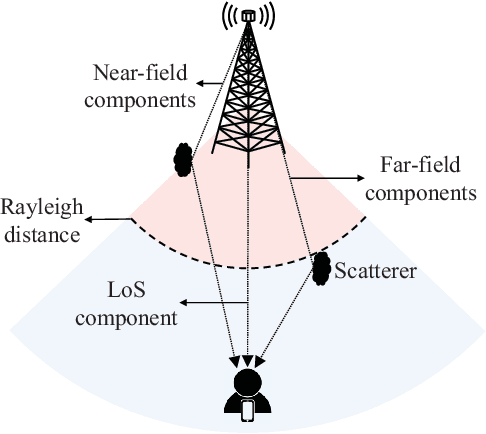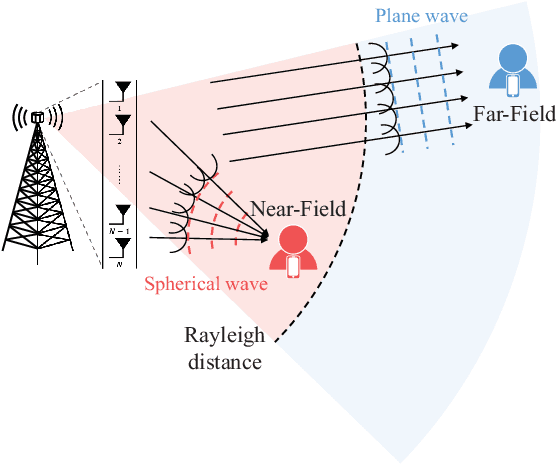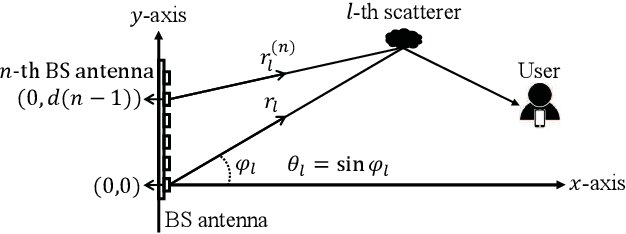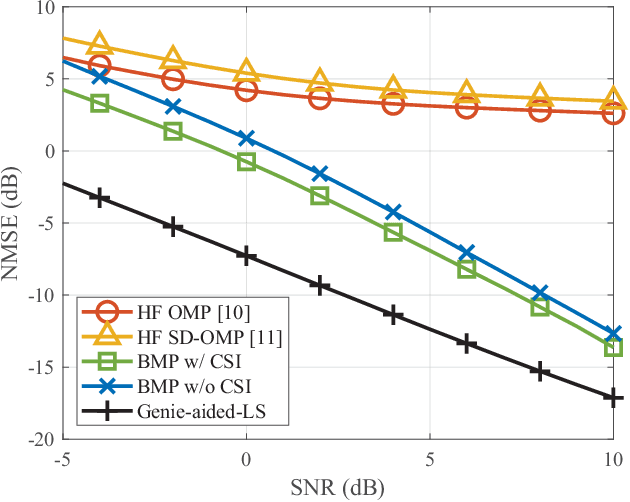Yoonseong Kang
Pilot Signal and Channel Estimator Co-Design for Hybrid-Field XL-MIMO
Mar 28, 2024



Abstract:This paper addresses the intricate task of hybrid-field channel estimation in extremely large-scale MIMO (XL-MIMO) systems, critical for the progression of 6G communications. Within these systems, comprising a line-of-sight (LoS) channel component alongside far-field and near-field scattering channel components, our objective is to tackle the channel estimation challenge. We encounter two central hurdles for ensuring dependable sparse channel recovery: the design of pilot signals and channel estimators tailored for hybrid-field communications. To overcome the first challenge, we propose a method to derive optimal pilot signals, aimed at minimizing the mutual coherence of the sensing matrix within the context of compressive sensing (CS) problems. These optimal signals are derived using the alternating direction method of multipliers (ADMM), ensuring robust performance in sparse channel recovery. Additionally, leveraging the acquired optimal pilot signal, we introduce a two-stage channel estimation approach that sequentially estimates the LoS channel component and the hybrid-field scattering channel components. Simulation results attest to the superiority of our co-designed approach for pilot signal and channel estimation over conventional CS-based methods, providing more reliable sparse channel recovery in practical scenarios.
Bayesian Inverse Contextual Reasoning for Heterogeneous Semantics-Native Communication
Jun 10, 2023Abstract:This work deals with the heterogeneous semantic-native communication (SNC) problem. When agents do not share the same communication context, the effectiveness of contextual reasoning (CR) is compromised calling for agents to infer other agents' context. This article proposes a novel framework for solving the inverse problem of CR in SNC using two Bayesian inference methods, namely: Bayesian inverse CR (iCR) and Bayesian inverse linearized CR (iLCR). The first proposed Bayesian iCR method utilizes Markov Chain Monte Carlo (MCMC) sampling to infer the agent's context while being computationally expensive. To address this issue, a Bayesian iLCR method is leveraged which obtains a linearized CR (LCR) model by training a linear neural network. Experimental results show that the Bayesian iLCR method requires less computation and achieves higher inference accuracy compared to Bayesian iCR. Additionally, heterogeneous SNC based on the context obtained through the Bayesian iLCR method shows better communication effectiveness than that of Bayesian iCR. Overall, this work provides valuable insights and methods to improve the effectiveness of SNC in situations where agents have different contexts.
 Add to Chrome
Add to Chrome Add to Firefox
Add to Firefox Add to Edge
Add to Edge